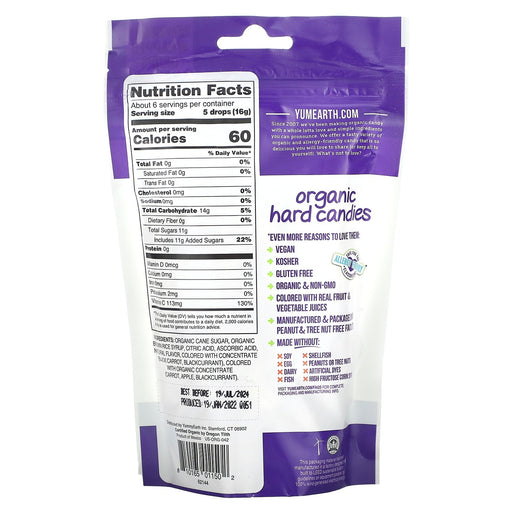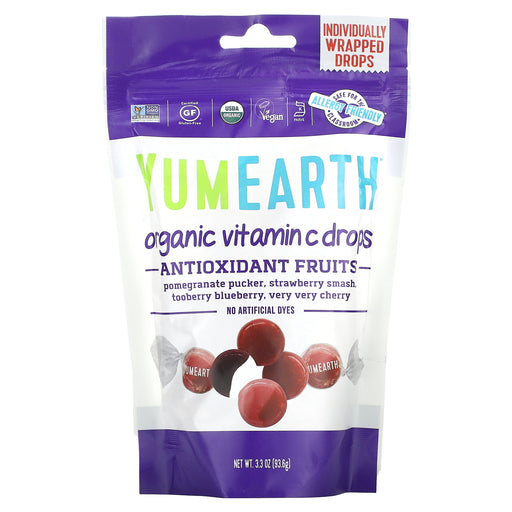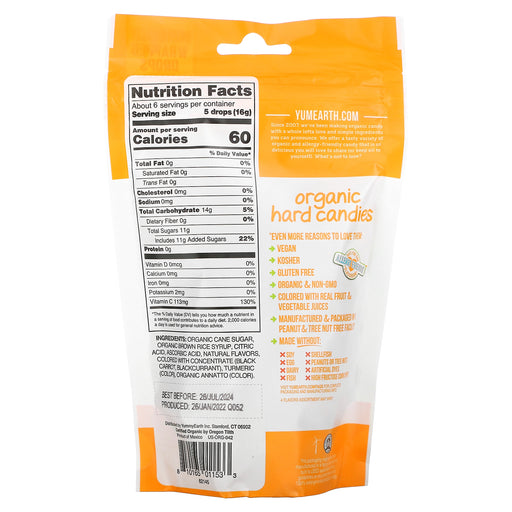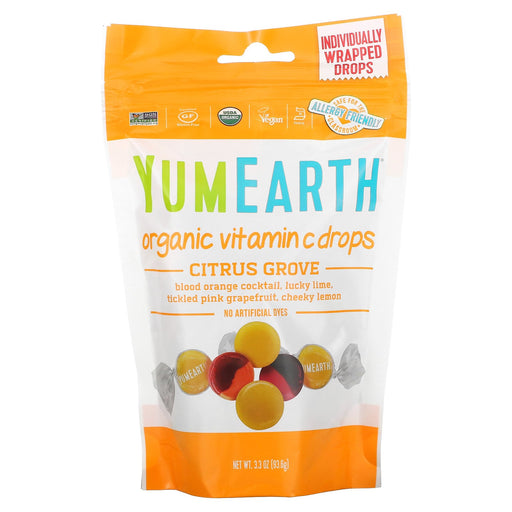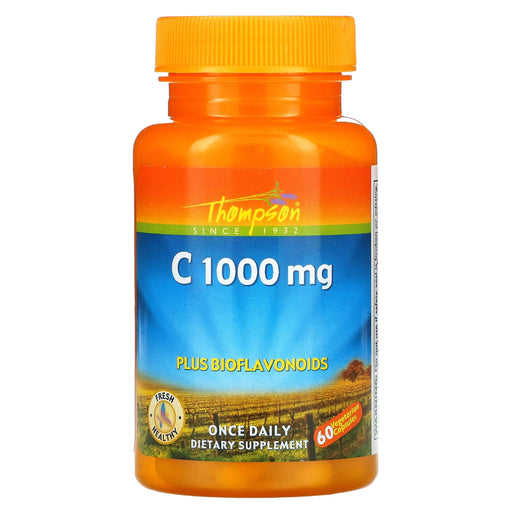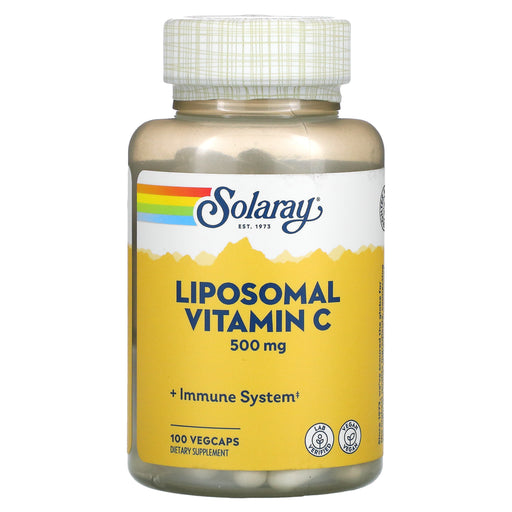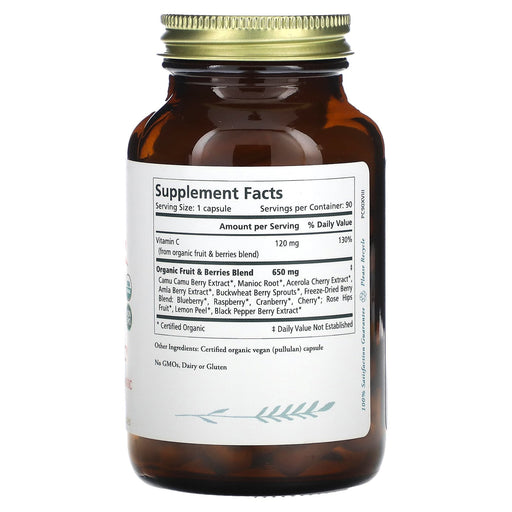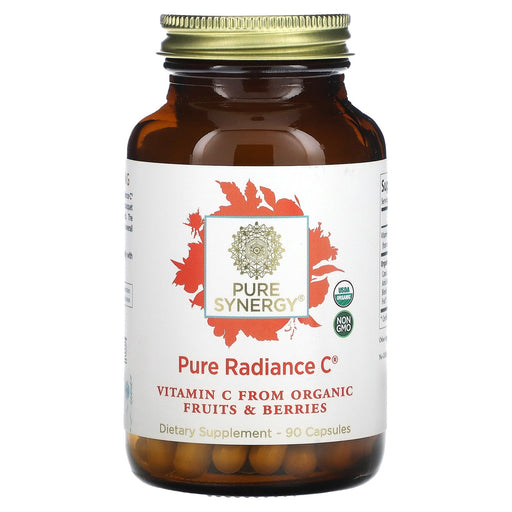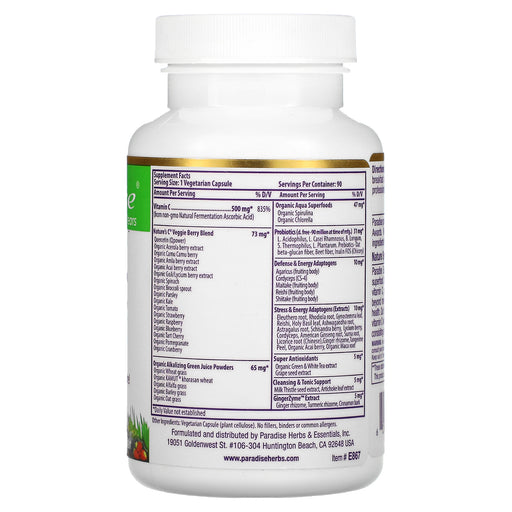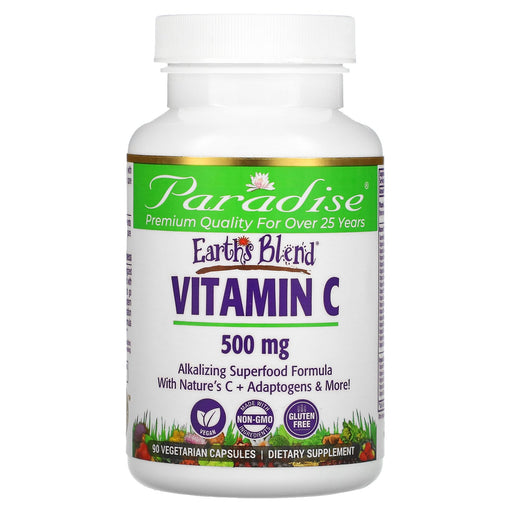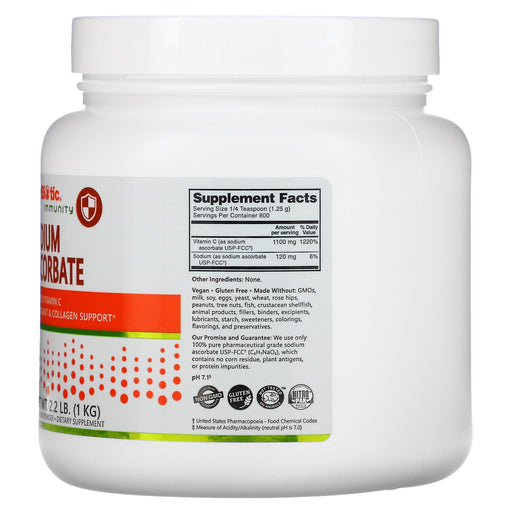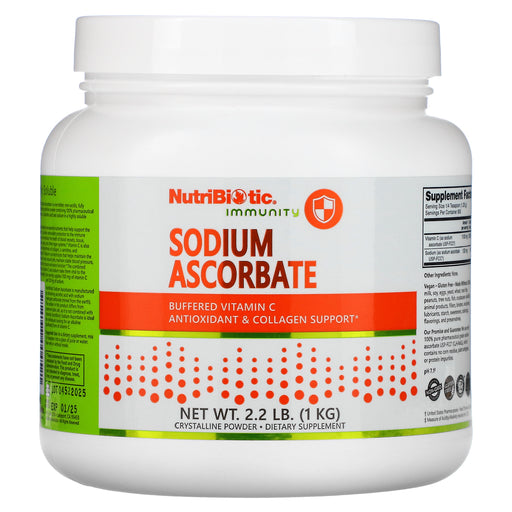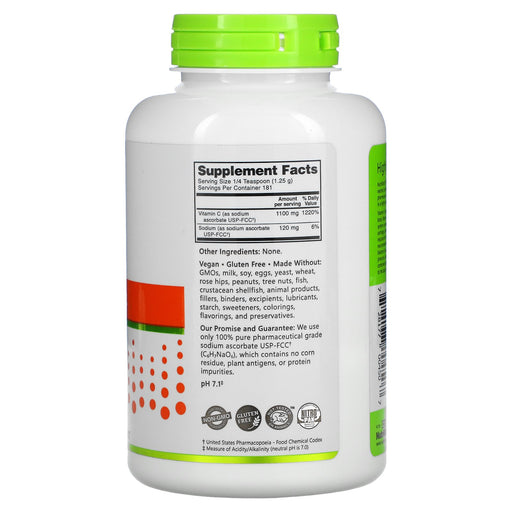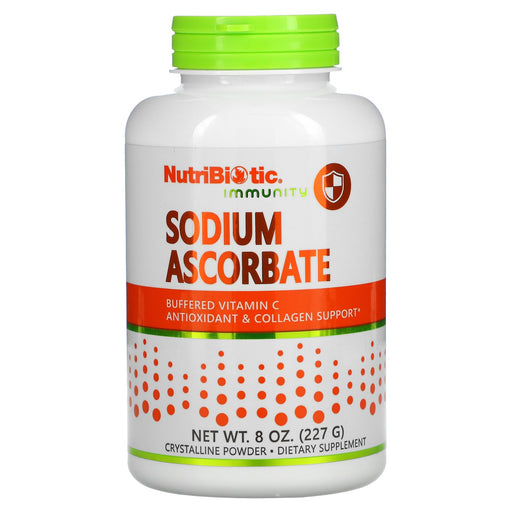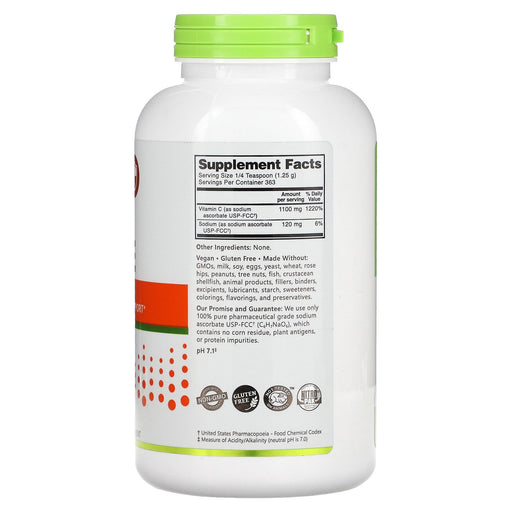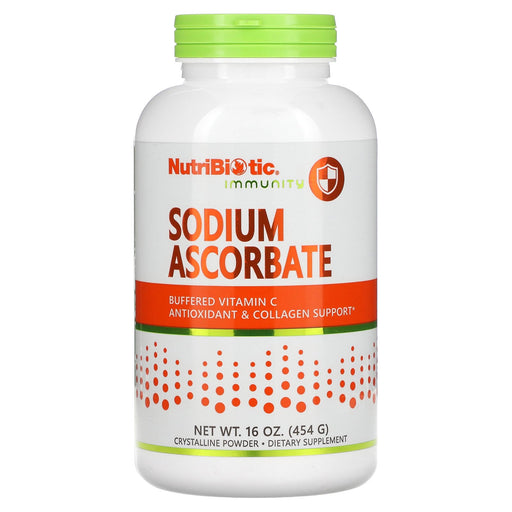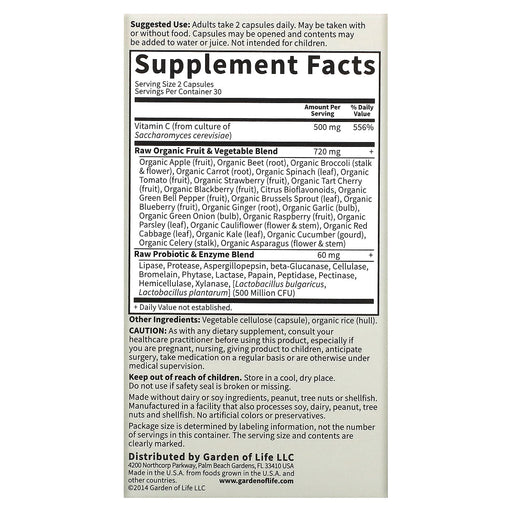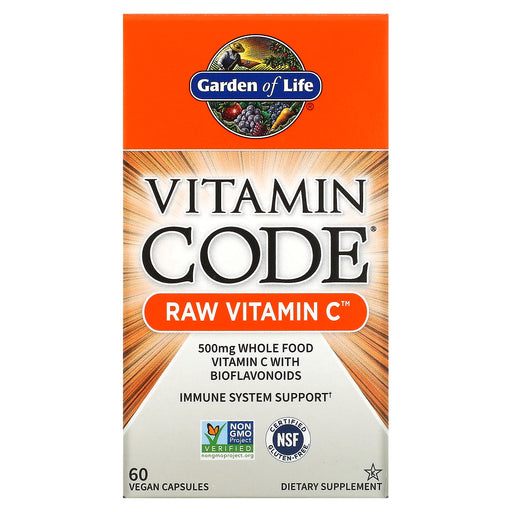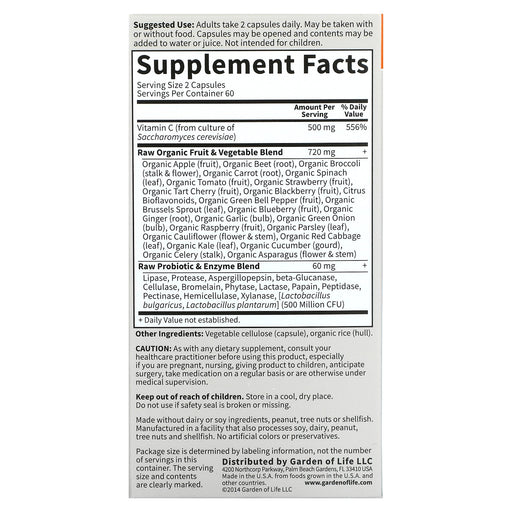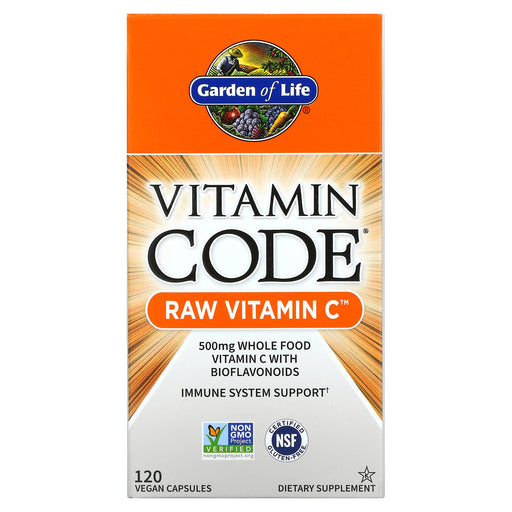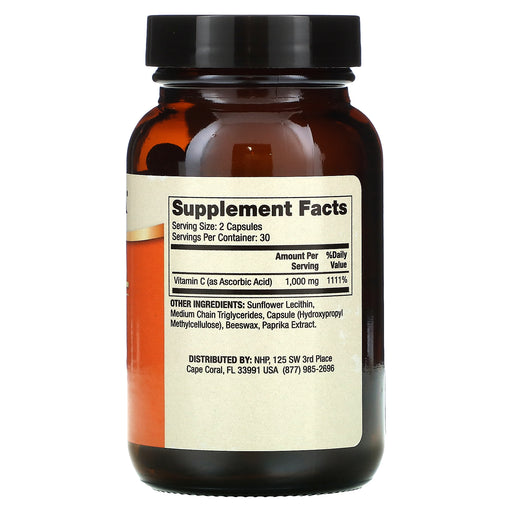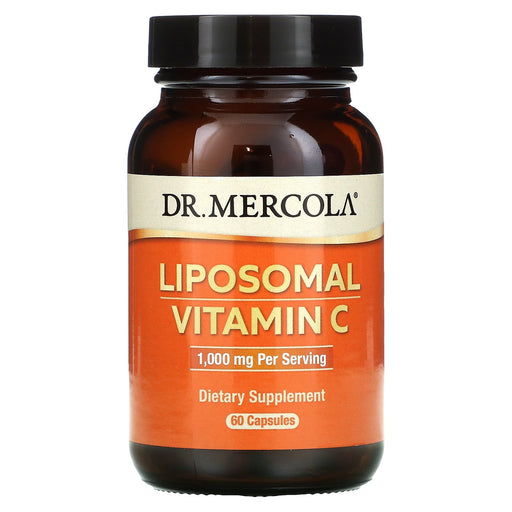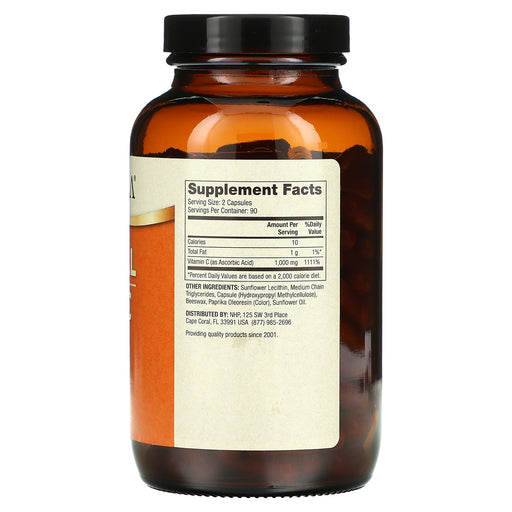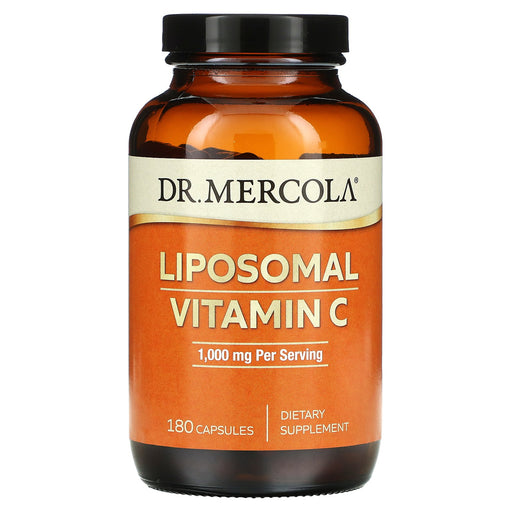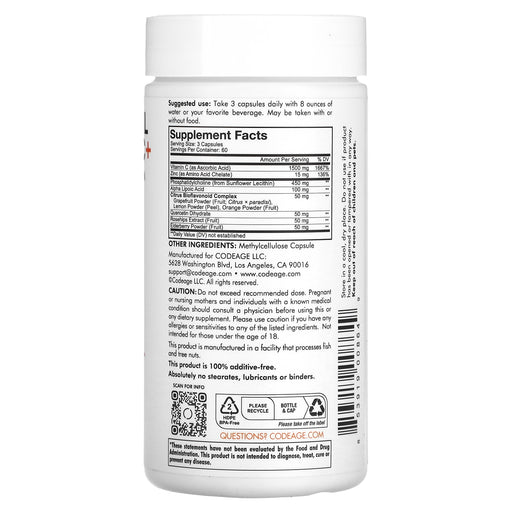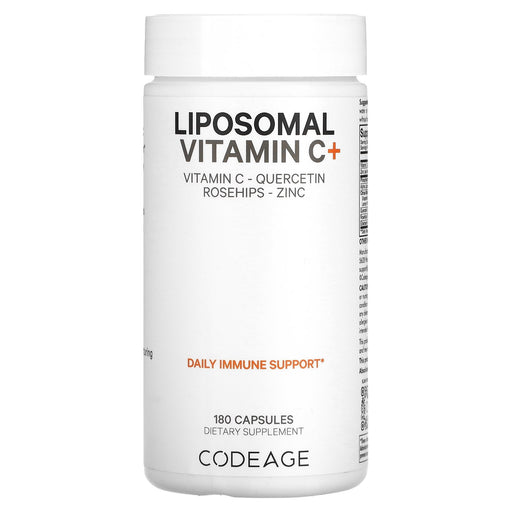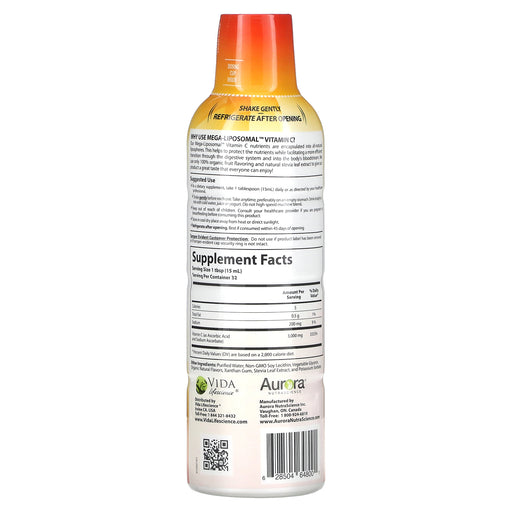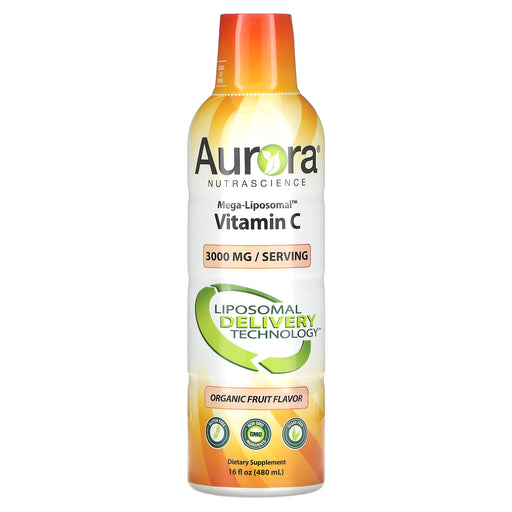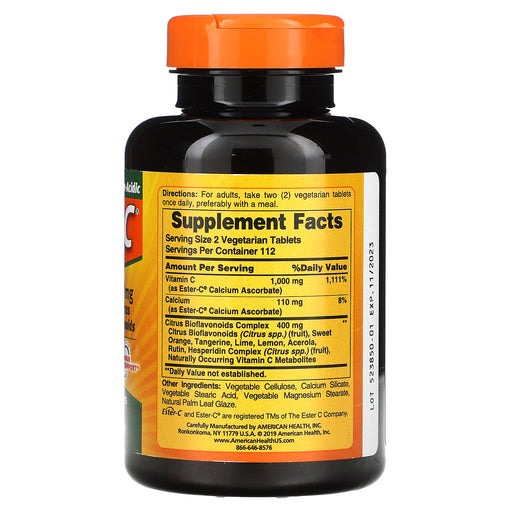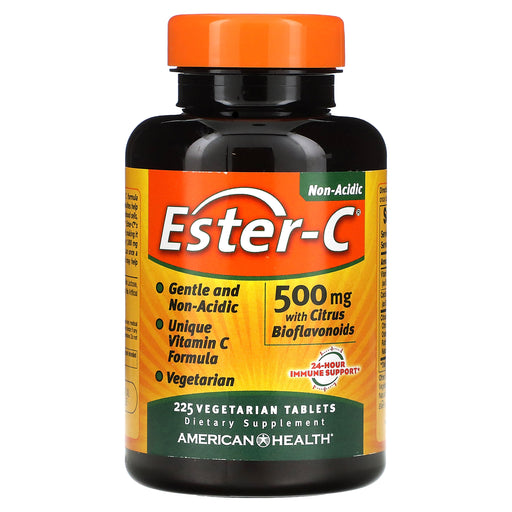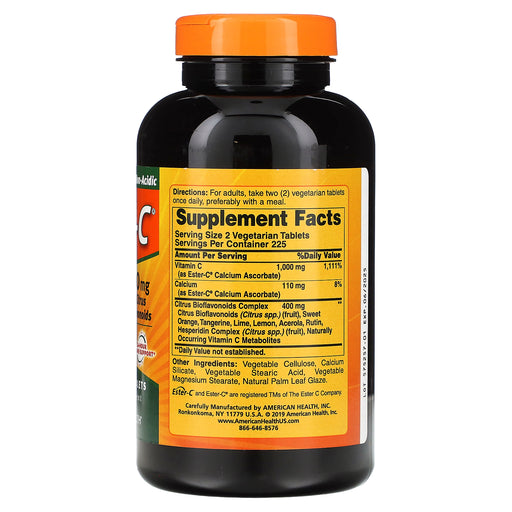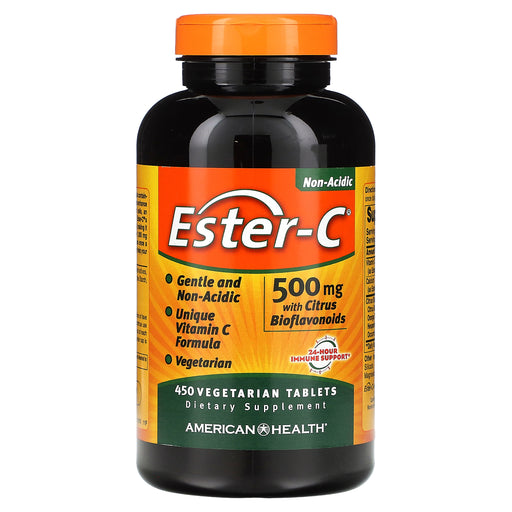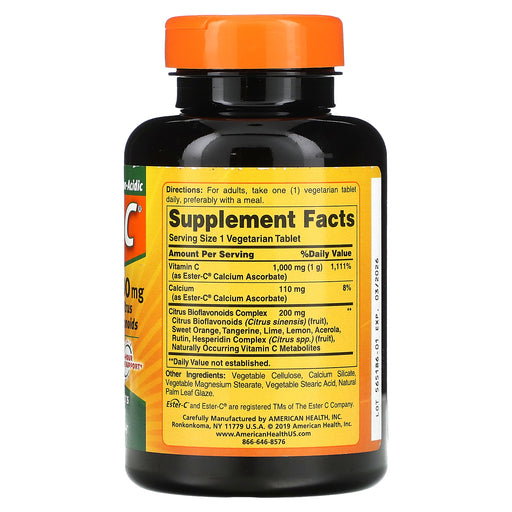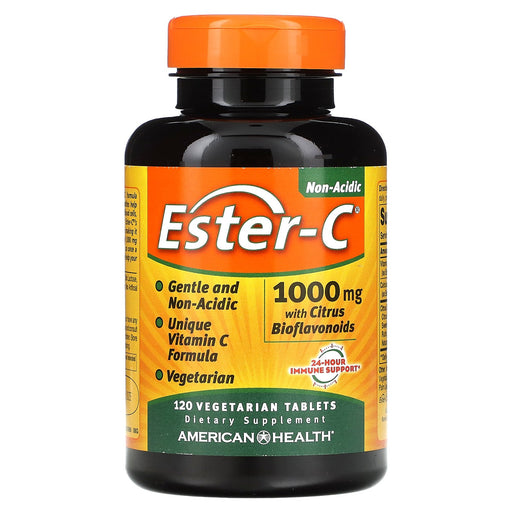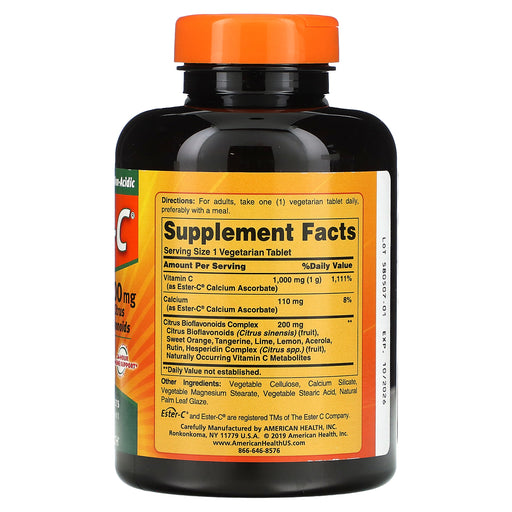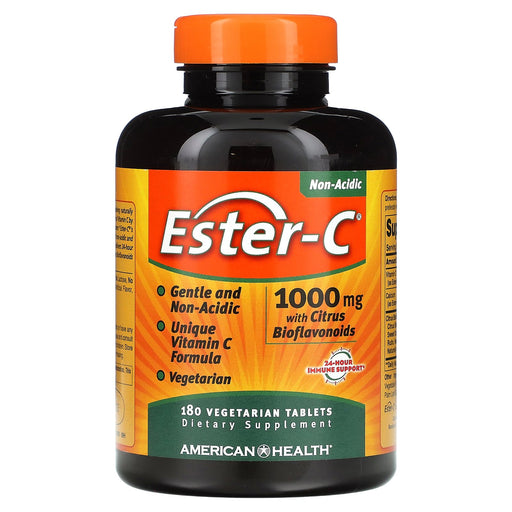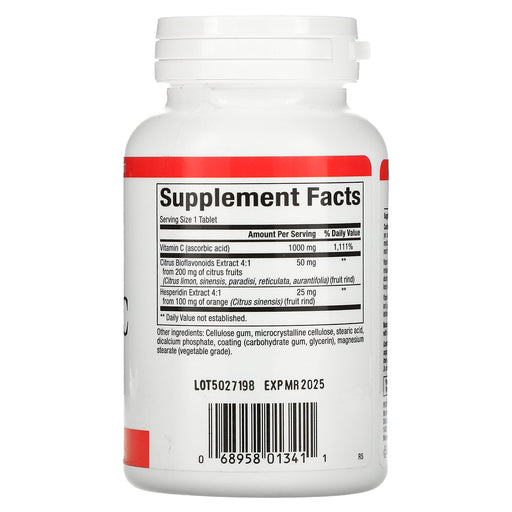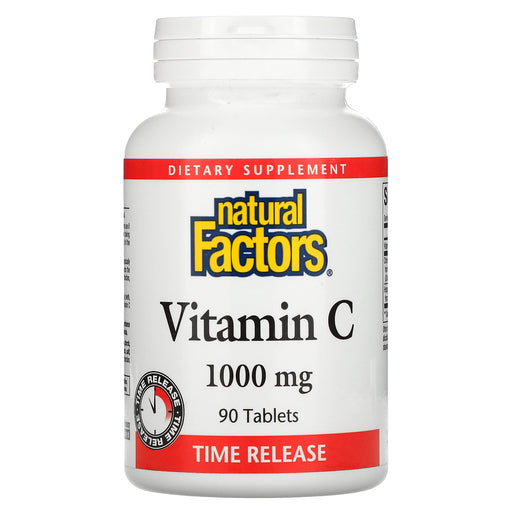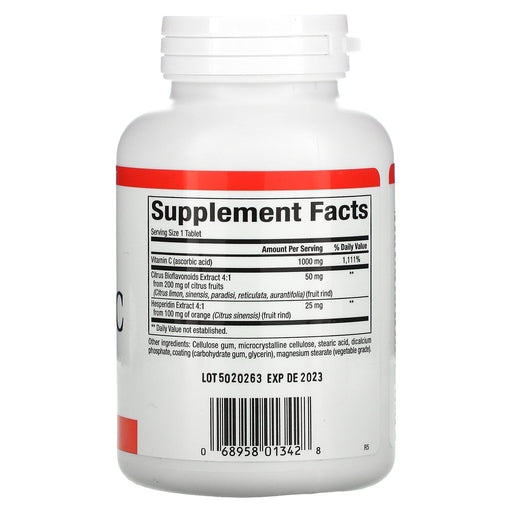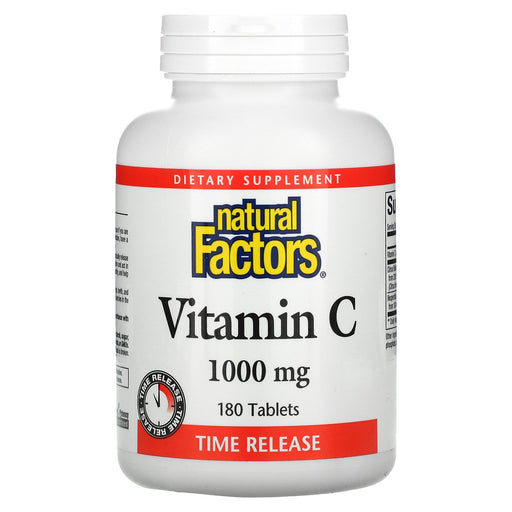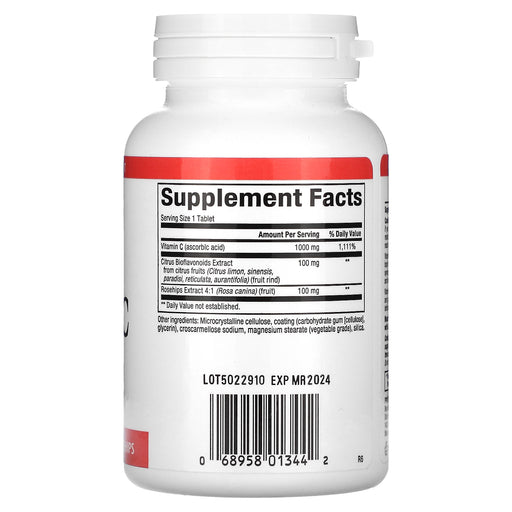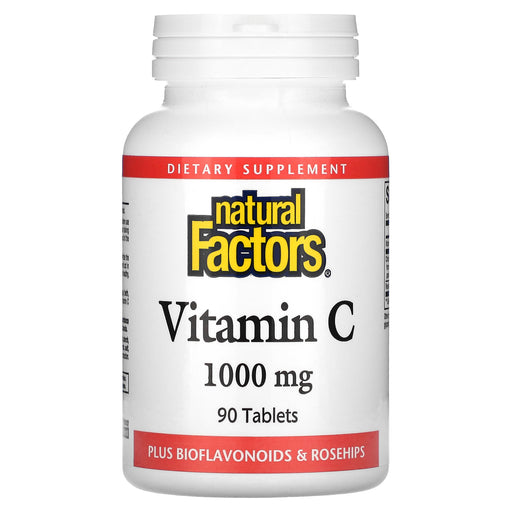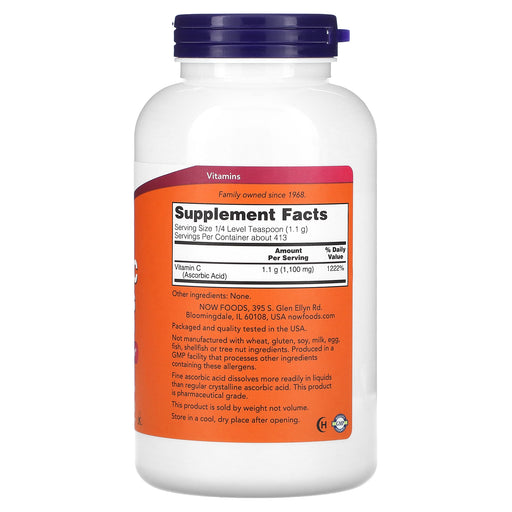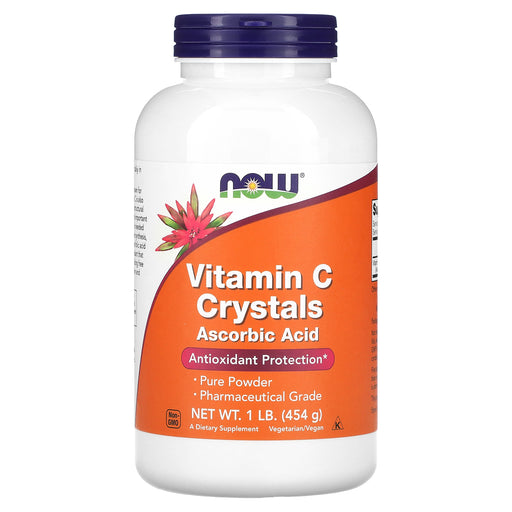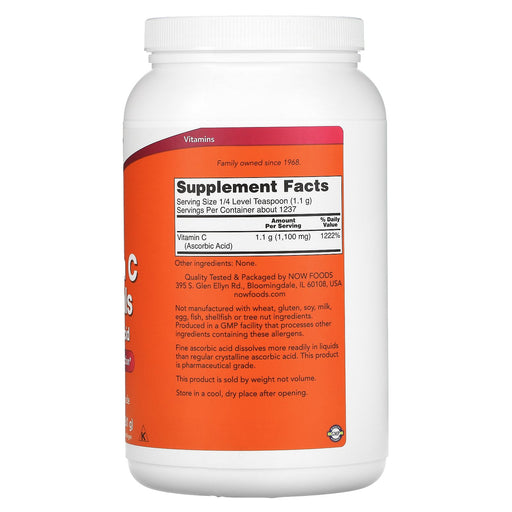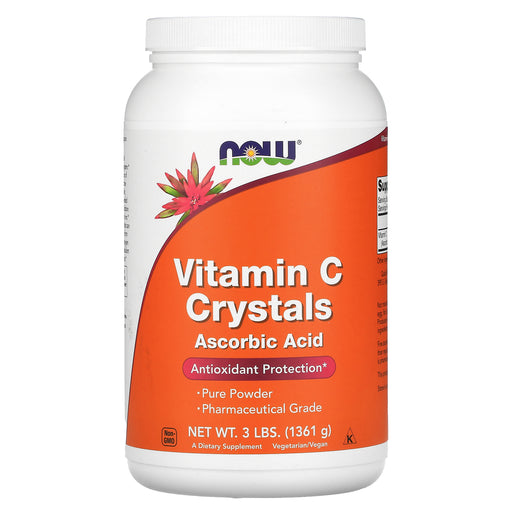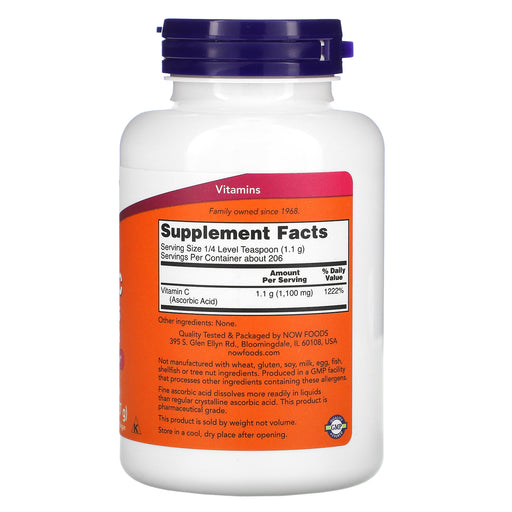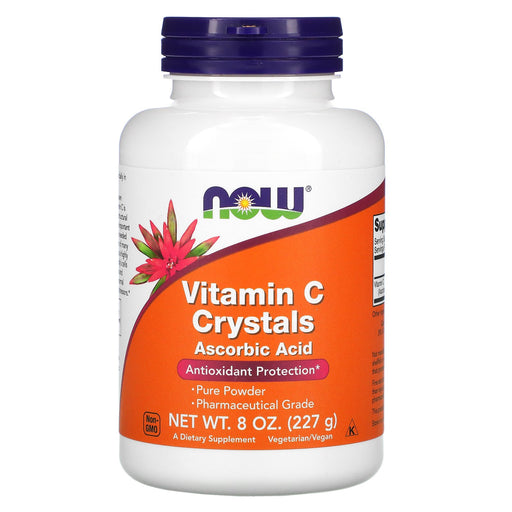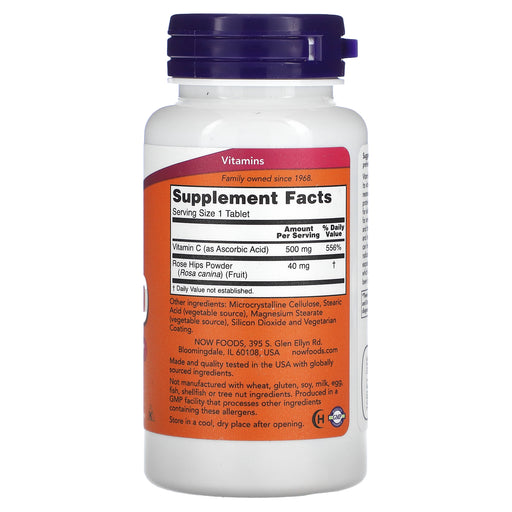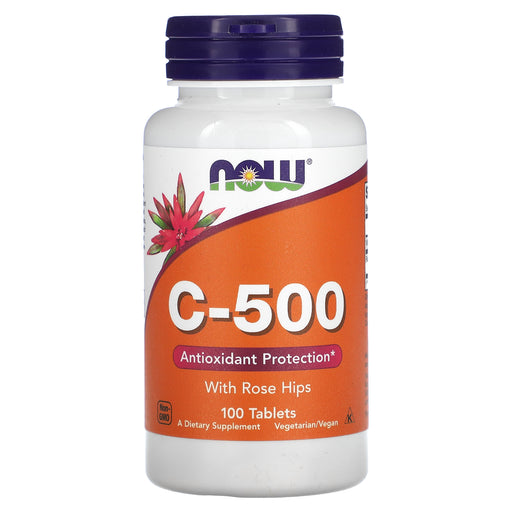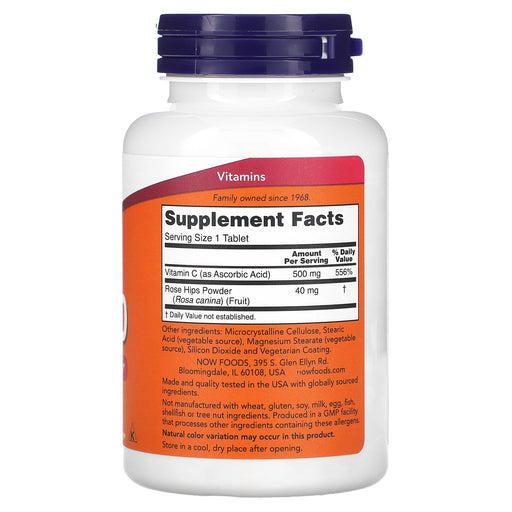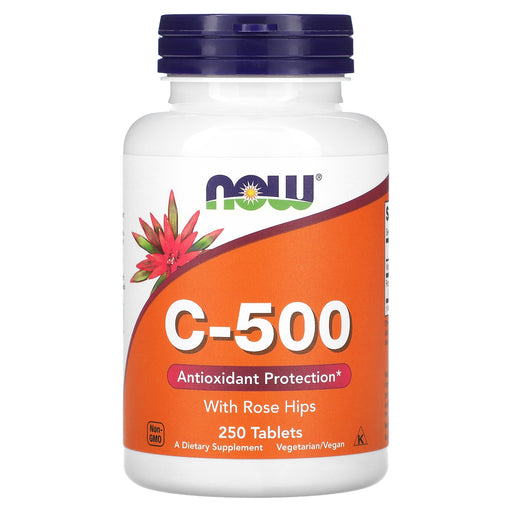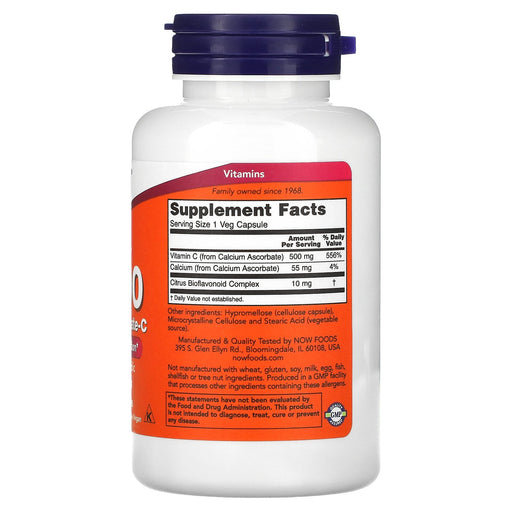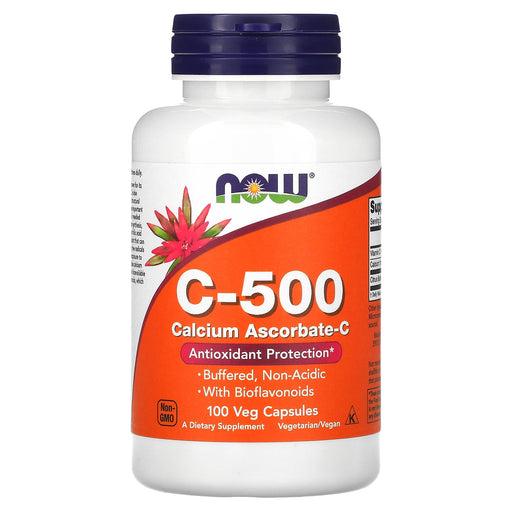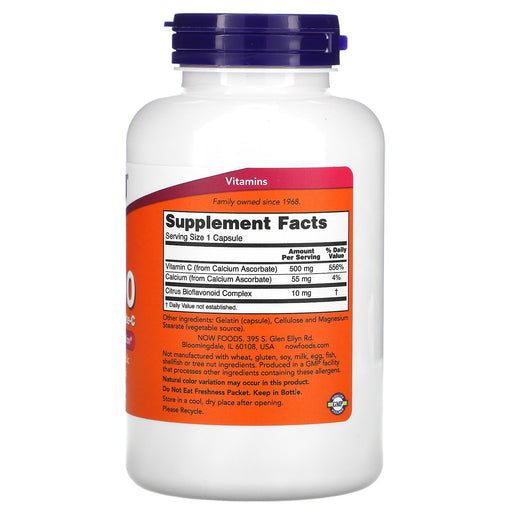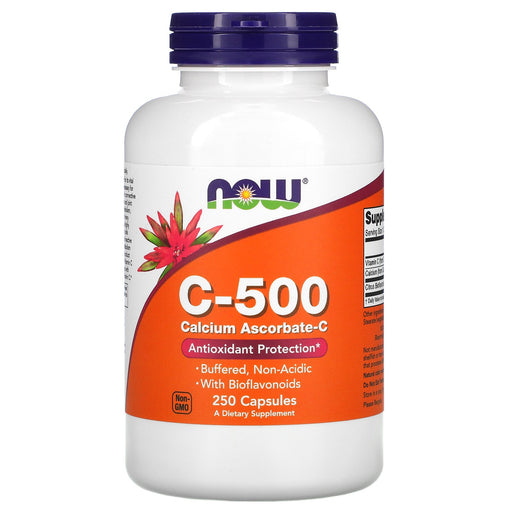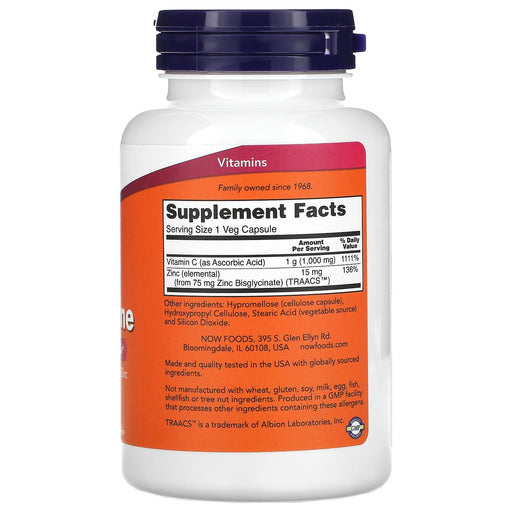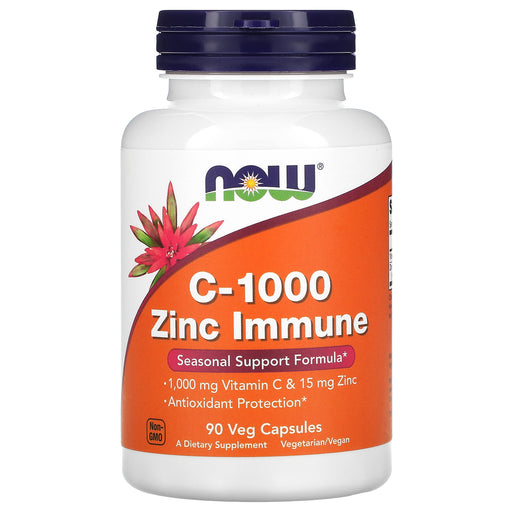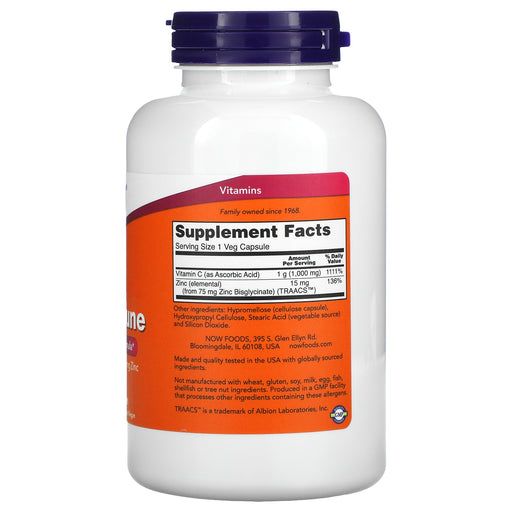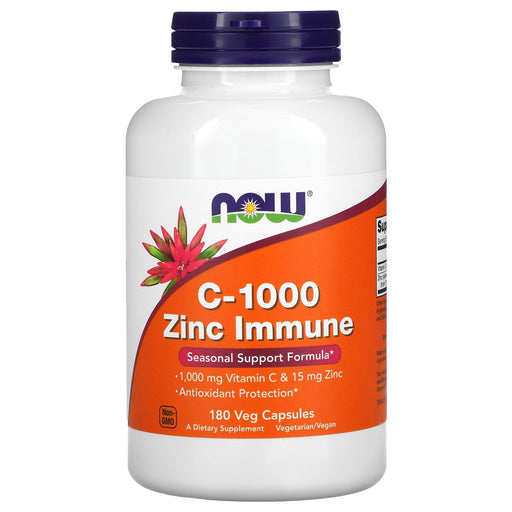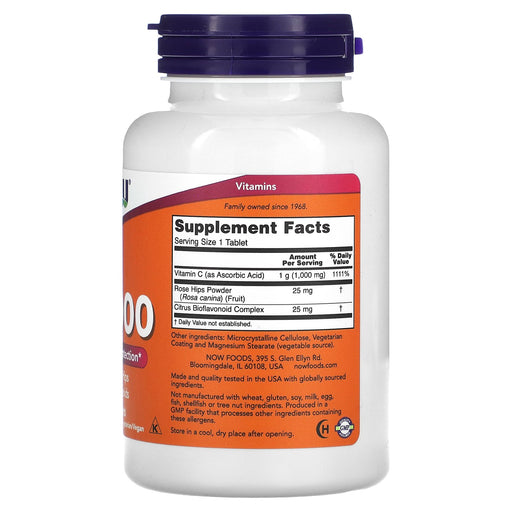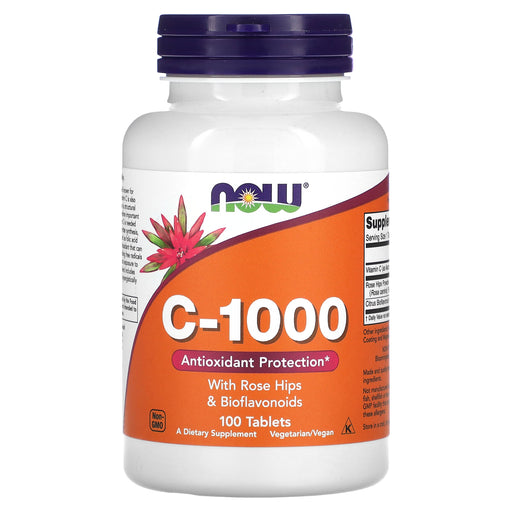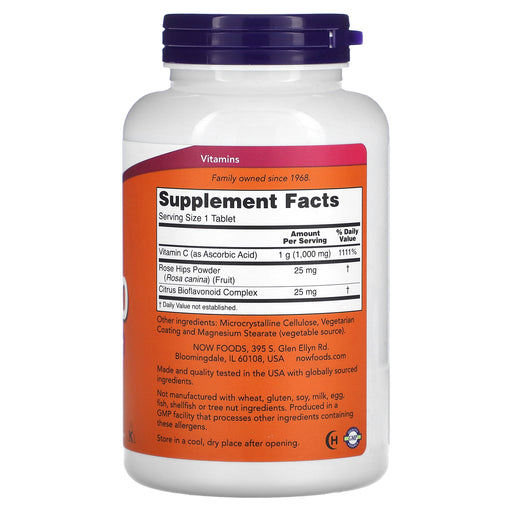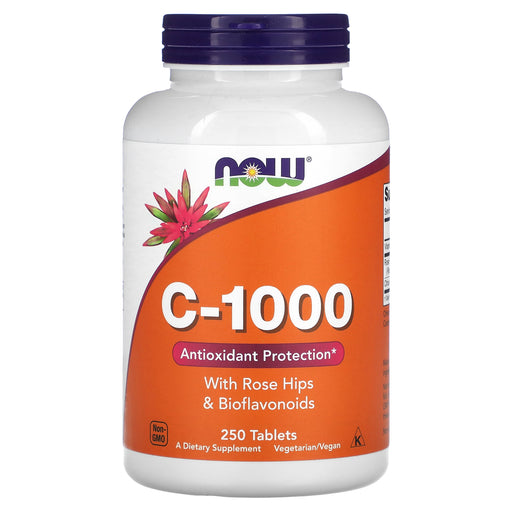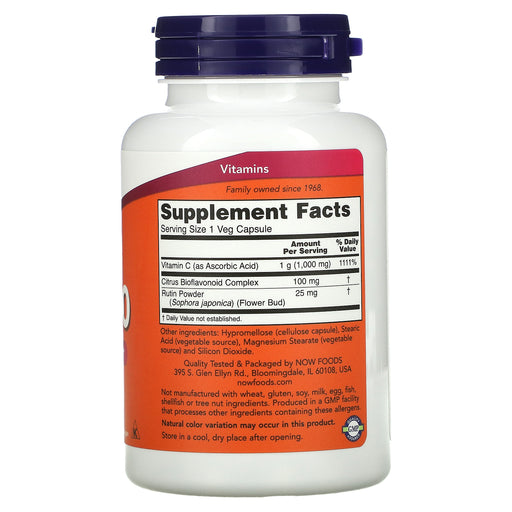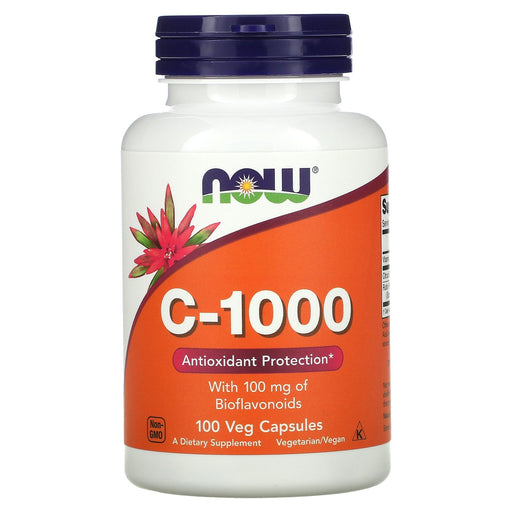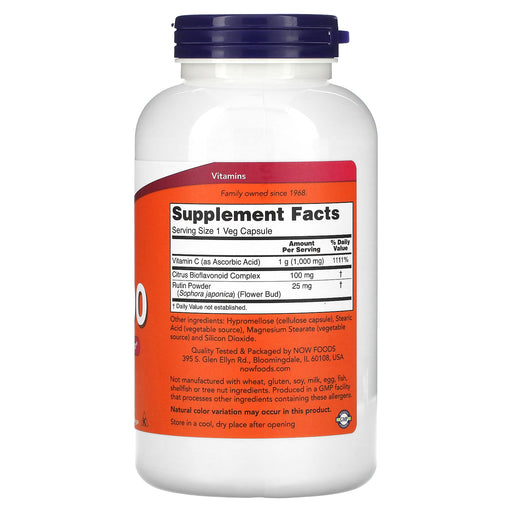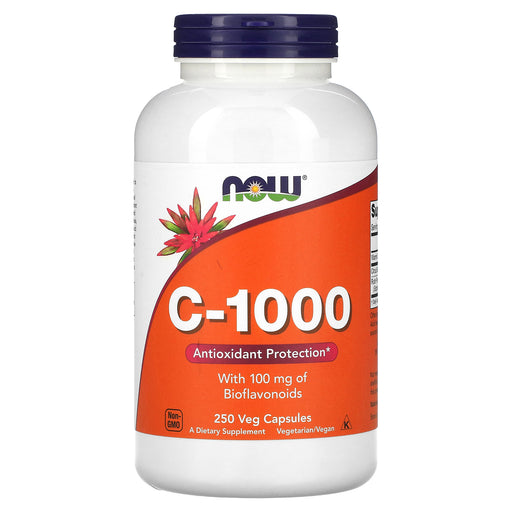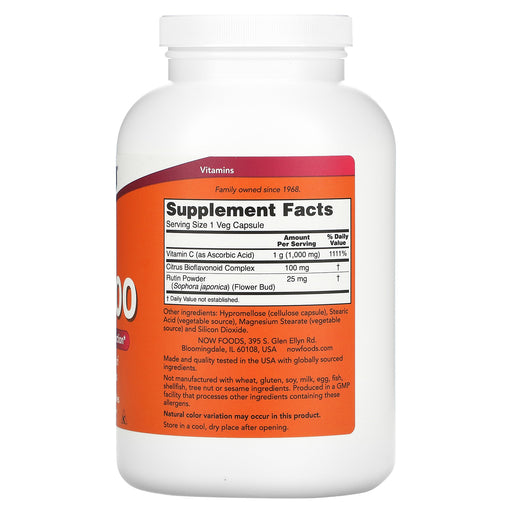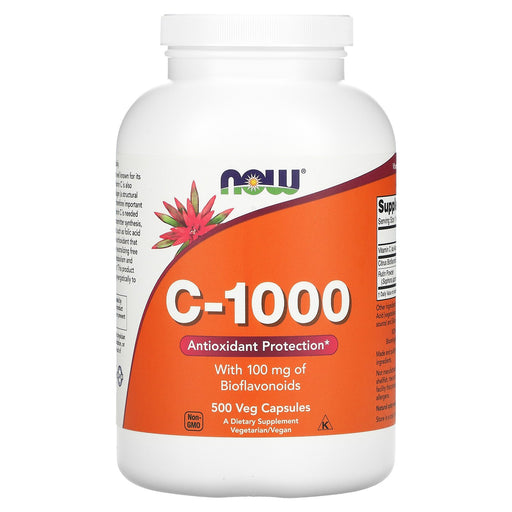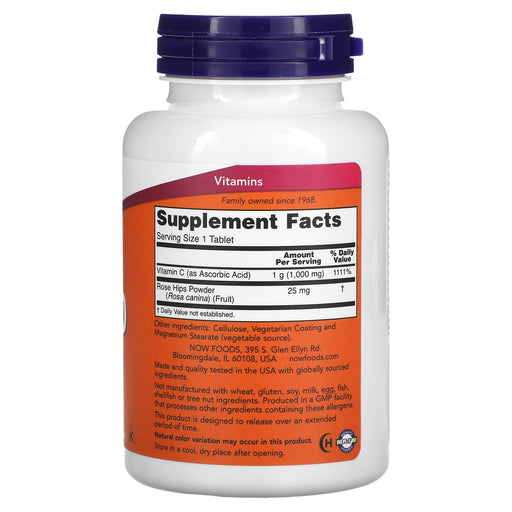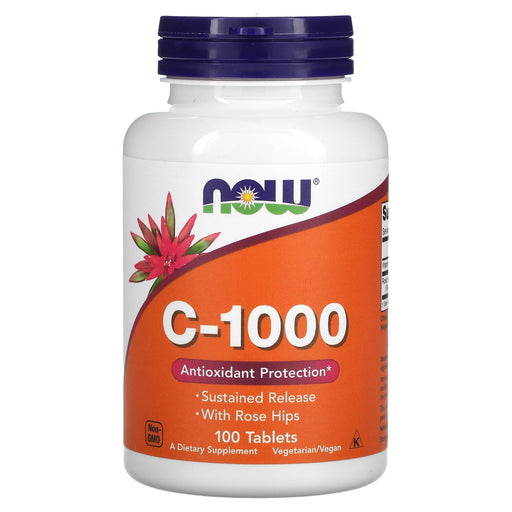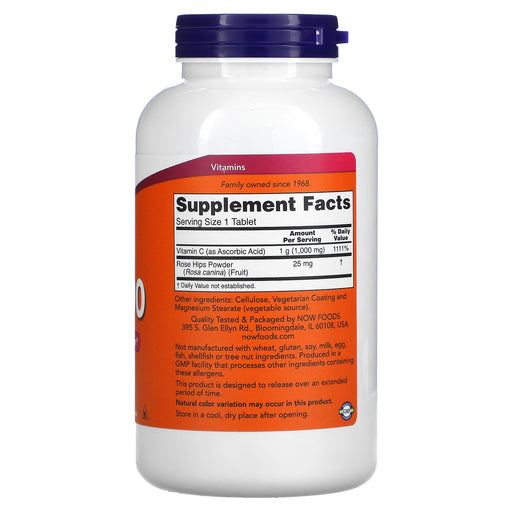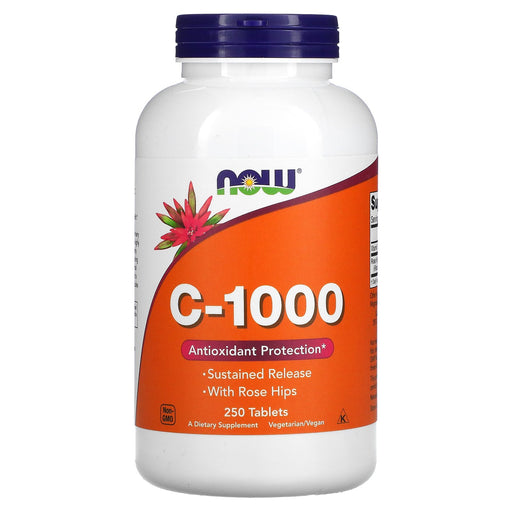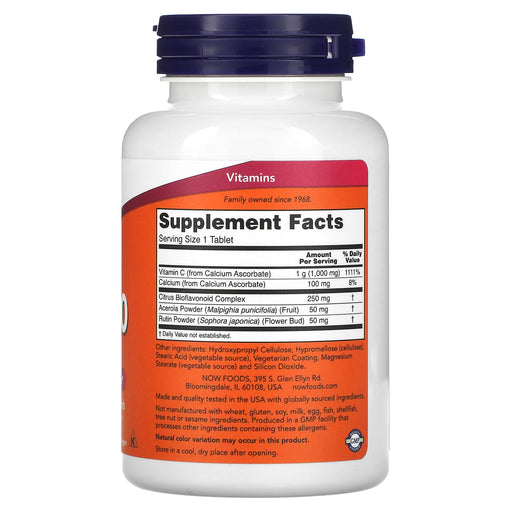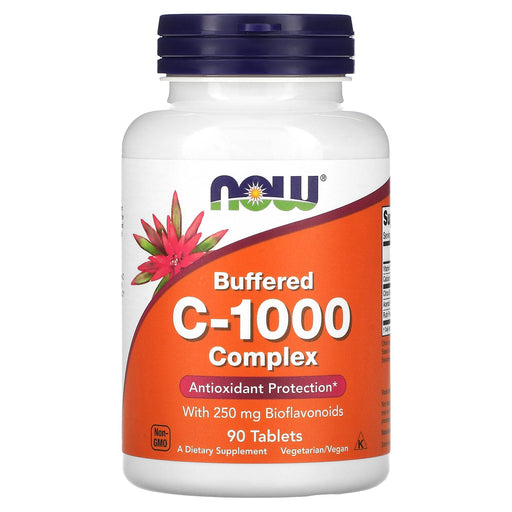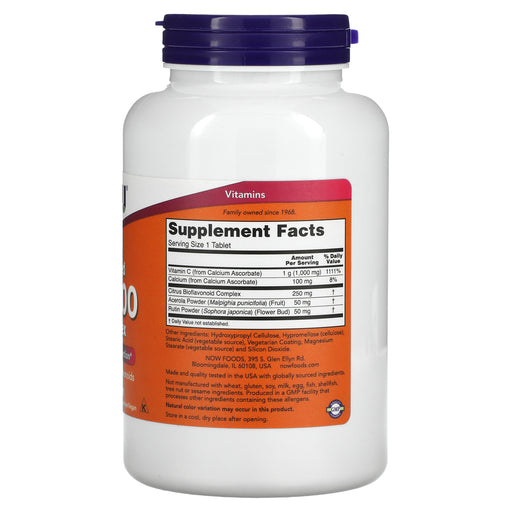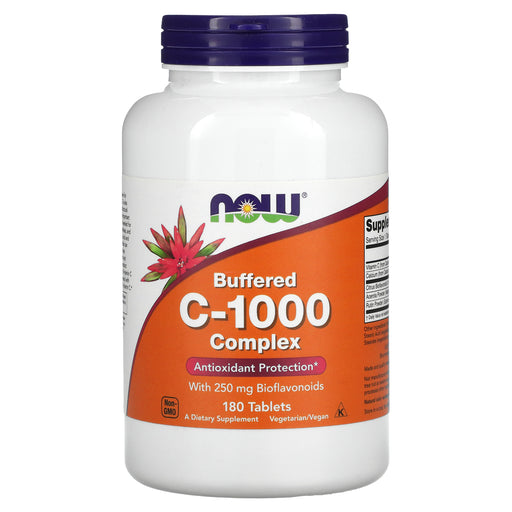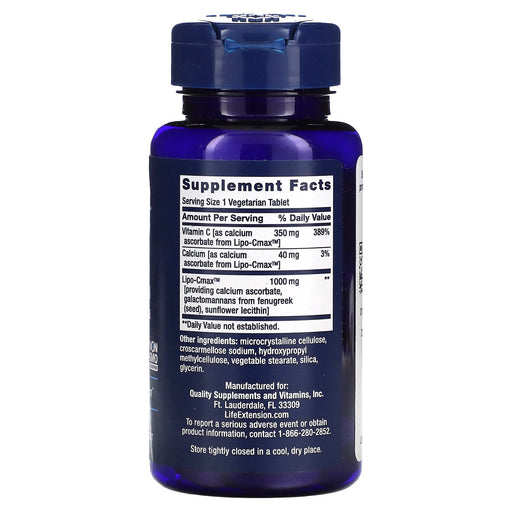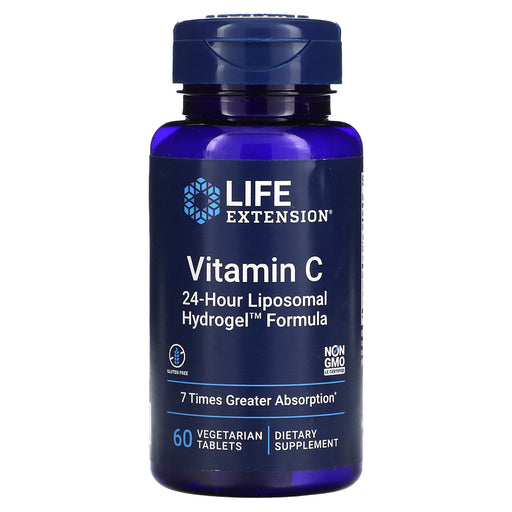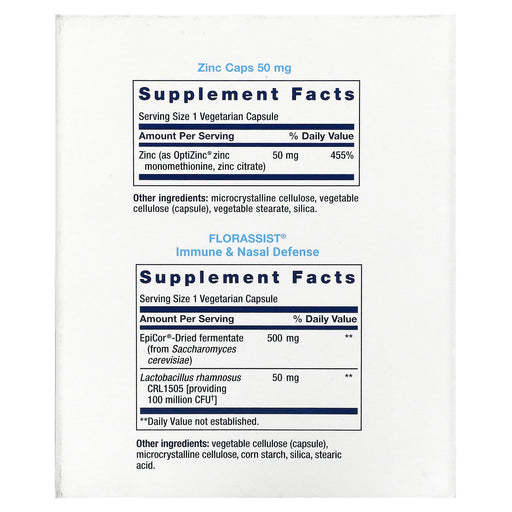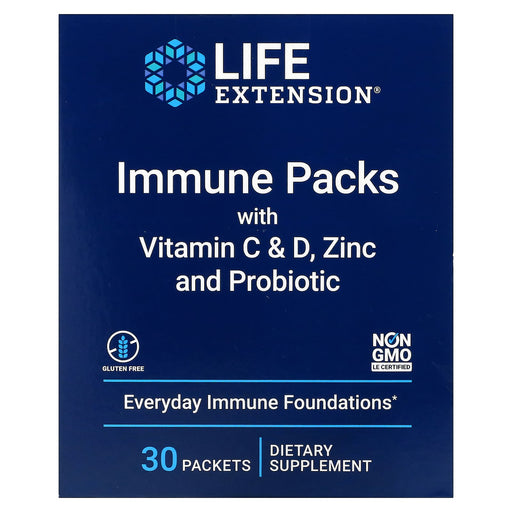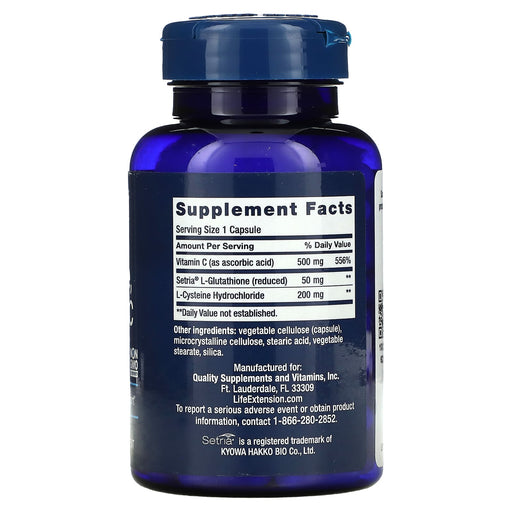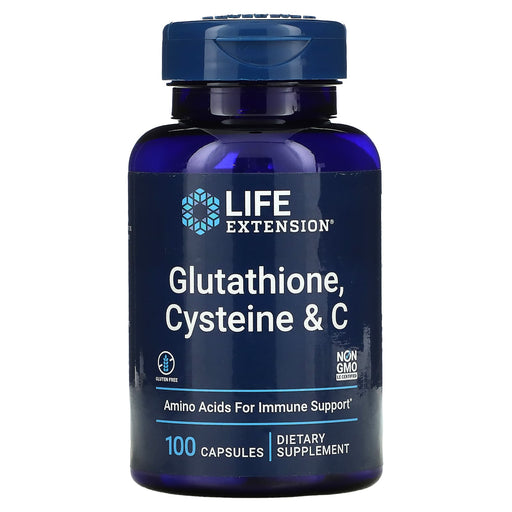
The Essential Nutrient for Immune Health, Antioxidant Protection, and More
Vitamin C, also known as ascorbic acid, is a water-soluble vitamin that plays a crucial role in various aspects of health, including immune function, antioxidant protection, collagen production, and iron absorption. By ensuring an adequate intake of this essential nutrient, you can support your body's natural defenses, promote healthy skin and connective tissues, and optimize overall well-being.
Understanding the Benefits of Vitamin C
Vitamin C offers a wide range of health benefits, making it an essential nutrient for optimal well-being:
- Immune System Support: Vitamin C helps stimulate the production and function of white blood cells, which are vital for fighting off infections and maintaining a strong immune system.
- Antioxidant Protection: As a potent antioxidant, Vitamin C helps protect cells from damage caused by free radicals, which are unstable molecules that can contribute to oxidative stress and the development of chronic diseases.
- Collagen Synthesis: Vitamin C is essential for the production of collagen, a protein that provides structure and support to skin, bones, cartilage, and blood vessels, promoting healthy aging and wound healing.
- Enhanced Iron Absorption: Vitamin C helps improve the absorption of non-heme iron, the type of iron found in plant-based foods, making it especially important for vegans, vegetarians, and individuals with iron deficiency.
- Cardiovascular Health: Studies suggest that Vitamin C may help support cardiovascular health by promoting the production of nitric oxide, a compound that helps relax blood vessels and improve circulation.
Vitamin C and Related Nutrients
To maximize the benefits of Vitamin C supplementation, consider pairing it with related nutrients that work synergistically to support overall health and well-being, such as:
- Zinc: This essential mineral plays a crucial role in immune function, wound healing, and protein synthesis. Combining Vitamin C with Zinc supplements can provide a powerful immune-supportive duo.
- Vitamin E: As another potent antioxidant, Vitamin E works together with Vitamin C to protect cells from oxidative stress and support healthy aging. Pairing Vitamin C with Vitamin E supplements can enhance their antioxidant benefits.
- Bioflavonoids: These plant compounds, found in citrus fruits and other sources, work synergistically with Vitamin C to enhance its absorption and antioxidant effects. Look for Vitamin C supplements that include bioflavonoids for added benefits.
Choosing High-Quality Vitamin C Supplements
When selecting a Vitamin C supplement, it's essential to choose a high-quality product from a reputable brand. Consider the following factors:
- Form of Vitamin C: Look for supplements that provide Vitamin C in the form of ascorbic acid or buffered forms like calcium ascorbate or magnesium ascorbate, which may be gentler on the stomach.
- Optimal Dosage: Choose supplements that provide an appropriate dosage of Vitamin C based on your age, sex, and health status. While the recommended daily allowance (RDA) for Vitamin C is 65-90 mg per day, higher doses may be beneficial for certain individuals or health conditions.
- Purity and Quality: Opt for supplements manufactured in GMP-certified facilities, free from contaminants and fillers, and third-party tested for purity and potency.
- Brand Reputation: Select supplements from trusted brands with a history of producing effective, science-backed nutritional products.
Incorporating Vitamin C Supplements into Your Health Regimen
To maximize the benefits of Vitamin C supplementation, consider the following tips:
- Spread Your Dosage: As a water-soluble vitamin, Vitamin C is not stored in the body and needs to be replenished regularly. Consider splitting your daily dose into smaller amounts taken throughout the day for optimal absorption and effectiveness.
- Pair with a Balanced Diet: While Vitamin C supplements can help ensure adequate intake, they should be used in conjunction with a balanced diet that includes a variety of Vitamin C-rich foods, such as citrus fruits, berries, kiwi, bell peppers, and leafy greens.
- Consider Your Lifestyle: Certain lifestyle factors, such as smoking, excessive alcohol consumption, and intense physical stress, can increase your body's need for Vitamin C. If you fall into one of these categories, you may benefit from higher doses of Vitamin C supplementation.
Support Your Immune Health and Overall Well-Being with Vitamin C
Ready to experience the essential benefits of Vitamin C for your immune health, antioxidant protection, and overall well-being? Experience our collection of premium Vitamin C supplements and take the first step towards optimal health and vitality.
Our Vitamin C products are carefully formulated with high-quality, bioavailable ingredients to ensure maximum absorption and effectiveness. Whether you're looking for supplement to support your immune system, promote healthy skin and connective tissues, or enhance your body's natural defenses against oxidative stress, our supplements can help you achieve your health goals.
Invest in your health and well-being with the power of Vitamin C. Browse our collection today and unleash the potential of this essential nutrient for your overall health and vitality.
Frequently Asked Questions about Vitamin C
1. Is it OK to take vitamin C supplements everyday?
Yes, it is generally safe to take vitamin C supplements every day, as it is a water-soluble vitamin that is not stored in the body in large amounts. Excess vitamin C is excreted through urine. The recommended daily allowance (RDA) for vitamin C is:
- 90 mg for adult men
- 75 mg for adult women
- Higher doses for pregnant or breastfeeding women, smokers, and individuals with certain health conditions
While taking high doses of vitamin C (up to 2,000 mg per day) is considered safe for most people, some may experience side effects like digestive discomfort, diarrhea, or nausea.
2. What is vitamin C supplement good for?
Vitamin C supplements can provide various health benefits, including:
- Immune system support: Vitamin C helps stimulate the production and function of white blood cells, enhancing the body's defense against infections and diseases
- Antioxidant protection: As a powerful antioxidant, vitamin C helps protect cells from damage caused by free radicals, reducing oxidative stress and inflammation
- Collagen synthesis: Vitamin C is essential for the production of collagen, a protein that promotes skin, bone, and joint health
- Iron absorption: Vitamin C enhances the absorption of non-heme iron from plant-based sources, preventing iron-deficiency anemia
- Cardiovascular health: Adequate vitamin C intake may help lower the risk of heart disease by improving blood vessel function and reducing LDL cholesterol oxidation
Vitamin C supplements can be particularly beneficial for individuals with low dietary intake, smokers, and those with certain health conditions that increase vitamin C requirements.
3. What is the best form of vitamin C to take?
The best form of vitamin C supplement may depend on individual preferences and needs. Some common forms include:
- Ascorbic acid: The most basic and widely available form of vitamin C, well-absorbed by the body
- Sodium ascorbate: A buffered form of vitamin C that is less acidic and gentler on the stomach
- Calcium ascorbate: Another buffered form that provides both vitamin C and calcium
- Liposomal vitamin C: Encapsulated in lipid molecules, this form may enhance absorption and bioavailability
- Ester-C: A patented form of vitamin C that contains calcium ascorbate and other metabolites, claimed to be better tolerated and retained in the body
When choosing a supplement, look for high-quality, third-party tested products from reputable brands to ensure purity and potency.
4. Do vitamin C tablets lighten skin?
While vitamin C is known for its skin health benefits, such as promoting collagen production and protecting against sun damage, there is limited scientific evidence to suggest that vitamin C tablets can directly lighten skin. However, topical vitamin C products, like serums or creams, may help improve skin brightness and even out skin tone by:
- Inhibiting melanin production, which can help reduce dark spots and hyperpigmentation
- Neutralizing free radicals that can cause skin damage and uneven pigmentation
- Stimulating collagen synthesis, leading to firmer, more radiant skin
For skin lightening purposes, it is best to use topical vitamin C products formulated for this specific use, in combination with sun protection and a consistent skincare routine.
5. What are the side effects of taking vitamin C?
While vitamin C is generally safe and well-tolerated, some people may experience side effects, especially when taking high doses. These can include:
- Digestive discomfort: Nausea, diarrhea, or abdominal cramps
- Headache or dizziness
- Skin flushing or redness
- Fatigue or insomnia
- Kidney stones
If you experience any adverse effects from taking vitamin C supplements, reduce the dosage or discontinue use and consult with a healthcare professional.
6. Is it better to take vitamin C in the morning or evening?
The best time to take vitamin C supplements may depend on individual preferences and lifestyle factors. Some considerations include:
- With meals: Taking vitamin C with food can help improve absorption and reduce the risk of digestive discomfort
- Consistency: Maintaining a consistent schedule can help ensure steady vitamin C levels in the body
- Personal tolerance: Some people may find that taking vitamin C in the morning helps boost energy and immunity throughout the day, while others may prefer taking it in the evening to minimize potential digestive issues
Ultimately, the most important factor is to take vitamin C supplements regularly, as directed by your healthcare provider or the supplement label.
7. How many vitamin C tablets per day?
The number of vitamin C tablets per day depends on the dosage of each tablet and your individual needs. The recommended daily allowance (RDA) for vitamin C is:
- 90 mg for adult men
- 75 mg for adult women
- Higher doses for pregnant or breastfeeding women, smokers, and individuals with certain health conditions
Most vitamin C supplements contain between 250-1,000 mg per tablet. It is generally safe to take up to 2,000 mg of vitamin C per day, but higher doses may cause digestive side effects. To determine the appropriate number of tablets for your needs, consider:
- The dosage per tablet
- Your individual RDA based on age, sex, and health status
- Any specific health concerns or goals
Always consult with a healthcare professional before starting a high-dose vitamin C supplement regimen to ensure safety and appropriateness for your needs.


